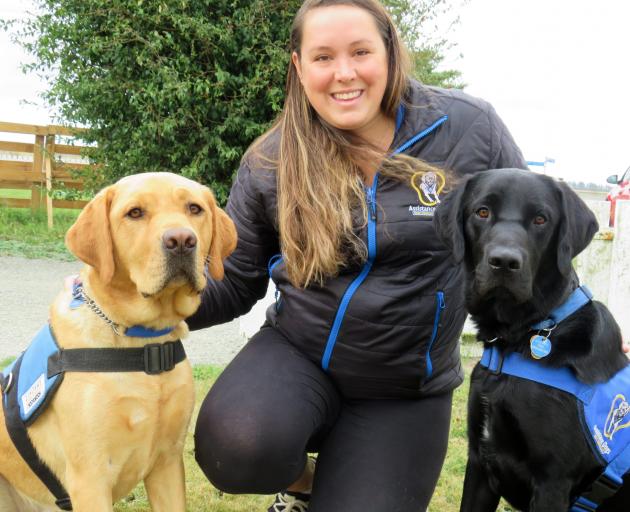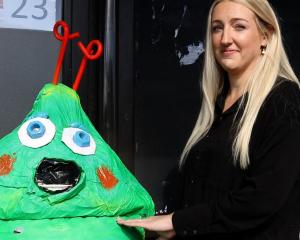
The dogs are in town because their training co-ordinator Ashleigh Murray has just relocated to Mid Canterbury to be with her partner, who has started a job on a farm at Wakanui.
Once they have completed six months of training, the dogs will go to New Zealanders living with a disability.
Ashleigh, who moved down from Auckland, is a big dog lover and works for the Assistance Dogs New Zealand Trust and formerly worked with guide dogs for the blind.
She trains the dogs and takes them out for trips into the community during the week to expose them to people and different environments and situations.
In the evenings and at weekends the dogs are borders at four homes in Allenton.
The dogs are picked up at 7.30am during the week and generally returned by 4pm.
Ashleigh said hundreds of people had answered the call for border homes placed on the Ashburton Noticeboard Facebook page and the matches were working out very well.
Each dog has been to puppy school and has been assessed to evaluate temperament and suitability, she said.
They are aged between 18 months and two years and are either labradors or labrador/retriever crosses.
The dogs are gentle and tolerant and custom training further develops their skills.
Some 95 per cent of clients for the dogs are children who suffer from conditions like autism, cerebral palsy, MS, epilepsy, diabetes or multiple disorders, Ashleigh said.
A connector line between the client and the dog acts as an anchor for those with autism. For sensory overload, the dogs are trained in deep pressure therapy and lie against a child to calm them down.
Assistance dogs also help improve fine and gross motor skills in clients. The dogs have the same legal public access rights as guide dogs.
Ashleigh is keen to be invited into local schools with the dogs in training and hopes to attend assemblies and other school events to get them used to people.
Of the four dogs in training, Wiggles has done the most and will graduate in about six weeks.
He will be paired with a suitable client and another dog will take his place on the intensive training programme.
It costs $75,000 to raise and train an assistance dog and there are currently 43 graduated dogs working with clients.
More information can be found at assistancedogstrust.org.nz.
-By Mick Jensen














